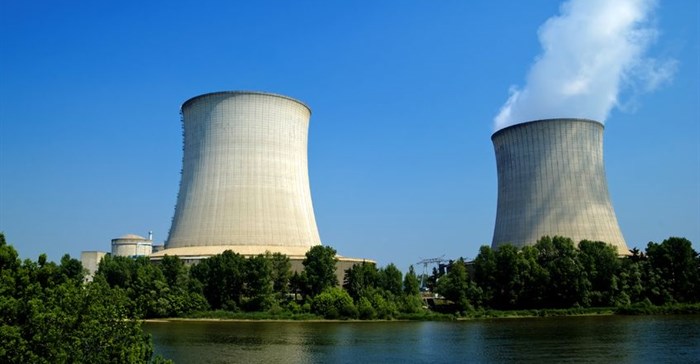The question about whether nuclear power is the right solution for South Africa will be debated at length during the Nuclear Forum session which forms part of the main Africa Energy Indaba conference. The Africa Energy Indaba will be held on 16 and 17 February in Sandton, Johannesburg.
There is currently a heated debate in the public discourse about nuclear proliferation and government's announcement that it will proceed with a nuclear build programme.
"Nobody in nuclear is saying that we should only be focusing on nuclear; we are saying that South Africa needs an energy mix where nuclear forms part of that mix," says Knox Msebenzi, managing director for the Nuclear Industry Association of South Africa (NIASA).
"In that diversified portfolio of energy assets, 17.8GW has been allocated to renewables and only 9.6GW will be allocated to nuclear. We are saying that South Africa needs an optimum mix and we must not put all our eggs into one basket."
Skills development
Nuclear power development brings with it the opportunity for South Africa to become skilled and competent as a nation in certain technological developments that aren't found with other forms of energy. Spin-off benefits to having a thriving nuclear industry include the opportunity to increase the already successful nuclear medicines industry. The treatment of cancer and the training and skilling of nuclear engineers and scientists are major areas to benefit from this.
Another benefit of using nuclear power is that, unlike renewables, nuclear power is reliable and can
be dispersed no matter what the weather conditions. It can provide base-load power to the grid, where renewables are far less reliable in terms of output.
"Coal provides base-load power but it has the disadvantage of high carbon emissions. Gas also provides base load power but our domestic supplies of it are not yet exploited economically. If one considers the cost of fuel required to produce power; gas is the most expensive, followed by coal then nuclear. Per KW hour generated, the component of fuel to get a unit of power is a lot higher than in the case of nuclear," says Msebenzi.
Msebenzi agrees that all technologies have potential risks. Safety is therefore paramount. "The National Nuclear Regulator is a very active and robust regulator. The safety of South Africa's nuclear power plants is governed by legislation, which is governed by the nuclear regulator. Safety comes first and we cannot let the fears of what happened elsewhere, brought on by a tsunami, stop us from advancing as a nation, and providing our people with electricity," says Msebenzi.
Economic structure
South Africa is sometimes compared to Europe when it comes to questions about why a nuclear build programme has been chosen. "But South Africa cannot compare itself to Europe's economies that are highly industrialised and have 100% electricity penetration, some of whom have taken political decisions to decommission their nuclear power plants. Our economic structure and needs are entirely different and we need access to large amounts of base-load power to boost our economy."
Msebenzi admits that a nuclear build programme will be capital intensive, which is why it is critical to get the right funding with low interest rates. "The financing model is critical. Government's Renewable Energy Independent Power Producer's Procurement Programme is a world class one with excellent financing models, and so can the nuclear build programme be."
"There is a school of thought which estimates that 70% of the nuclear build programme will be sourced locally in value. It will reinvigorate the nuclear industry, boost skills, create whole new industries and therefore create employment. The nuclear build programme can also be viewed as a regional power plan that will see South Africa supplying cheap electrical power to the region," Msebenzi concludes.














































